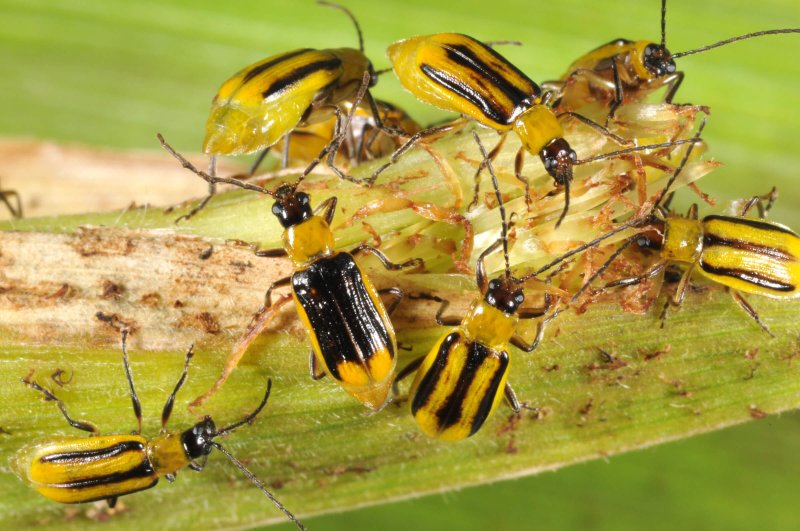Western corn rootworm can destroy cornfields — and profits — but populations of the “billion-dollar bug” have stopped responding to insecticides as well as the genetically modified (GM) corn hybrids designed to resist insect attacks, according to the University of Illinois.
However, there may be hope. In a new study, University of Illinois researchers uncovered the genetic basis of resistance to western corn rootworm, paving the way for development of non-GM corn hybrids that can withstand the pest.
…
The resistant corn lines can’t just be released here in the U.S. For one thing, the plants are massive compared to the elite hybrids Midwestern farmers are used to growing. They’re also adapted to very different environments and wouldn’t flower at the right time to produce reasonable yields.
By crossing exotic and elite lines, GEM created plants with a quarter of the genes of the exotics. Several of these lines remained promising with regard to their level of resistance, the announcement said.
…
The researchers haven’t found the gene for resistance — Bohn said the trait is likely too complex for it to boil down to a single gene — but the group has identified regions of the genome that appear to contribute to resistance using a technique known as QTL mapping.
[Editor’s note: Read the full study]
Read full, original post: Genetic resistance to ‘billion-dollar bug’ found in corn































